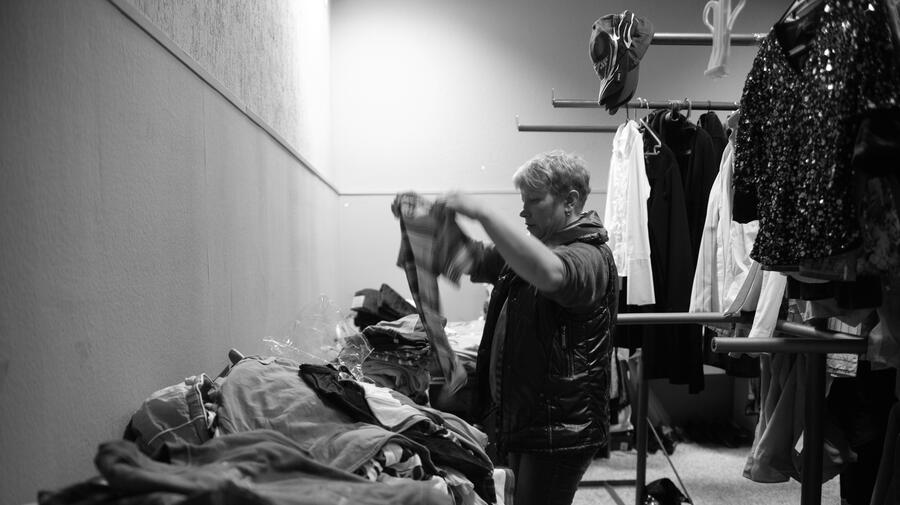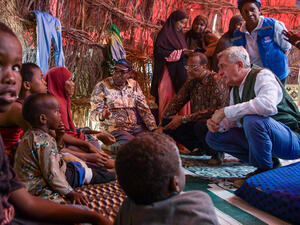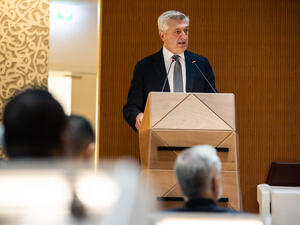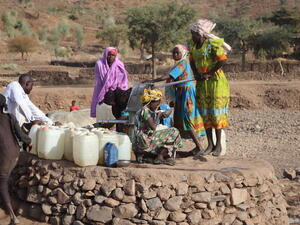Sharp rise in Ukrainian displacement, with more than 50,000 internally displaced
Sharp rise in Ukrainian displacement, with more than 50,000 internally displaced

A woman, one of more than 50,000 internally displaced people in Ukraine, folds clothes at a sanatorium in Ukraine that has been welcoming people.
GENEVA, June 27 (UNHCR) - The UN refugee agency said on Friday that forced displacement is rising in Ukraine with an estimated 54,400 people internally displaced - 12,000 from Crimea and the rest from the Eastern region. Over the past week, the number of internally displaced increased by more than 16,400.
"Increases are also being seen in the numbers of Ukrainians in Russia and other countries, although so far only a relatively small number have applied for refugee status," UNHCR spokesperson Melissa Fleming told journalists in Geneva. "Since the start of the year around 110,000 Ukrainians have arrived in Russia, and 750 have requested asylum in Poland, Belarus, Czech Republic and Romania," she added.
Fleming said that of those in Russia only 9,600 have requested asylum. "Most people are seeking other forms of legal stay, often we are told because of concerns about complications or reprisals in case of return to Ukraine," she said.
Arrivals of the past few days are mainly clustered in Rostov-On-Don (12,900 people, including 5,000 children) and Bryansk (6,500 people). In Rostov, people are being accommodated in public buildings and some tented camps. In Bryansk the majority are staying with relatives and friends. UNHCR has also seen unconfirmed reports of other recent arrivals from the east of Ukraine to Crimea.
"The rise in numbers of the past week coincides with a recent deterioration of the situation in eastern Ukraine. Displaced people cite worsening law and order, fear of abductions, human rights violations and the disruption of state services," Fleming said.
UNHCR has increased its presence and deployed missions to monitor displacement from the east. "Currently we are unable to verify all information on displacement and are relying on local and central authorities, partners and civil society organizations. Insecurity in some areas of Ukraine is hampering access to many areas where displaced people are located," the UNHCR spokesperson noted.
In Ukraine, the main challenges currently faced by displaced people are access to social services, long-term shelter and employment, and difficulties transferring residence registration. Most people are provided with temporary shelter and assistance from local authorities, NGOs and with donations of private citizens.
UNHCR has begun to distribute humanitarian assistance to displaced people in the east, and has delivered assistance in support of efforts by the local authorities to the town of Sviatohorsk, where the largest concentration of internally displaced people is found. UNHCR is also launching a self-reliance programme for vulnerable internally displaced people in western and central Ukraine.









